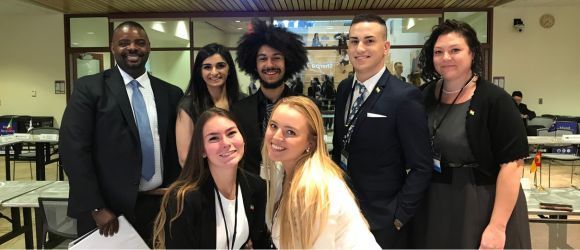Program Overview
Bachelor of Arts in Political Science
Prepare yourself for a future of important policymaking and contributions to our political landscape with a Bachelor of Arts in Political Science from the University of the District of Columbia. With small class sizes of 15 students on average and a diverse student body led by expert faculty, you'll have all the support necessary to become a meaningful and impactful political professional.
As a student in UDC's College of Arts and Sciences (CAS), you will have the opportunity to study under close supervision from faculty mentors who are experts in their respective fields—from the local politics of Washington, D.C. to the global politics of the international arena. There's nowhere in the world where you'll have the opportunity to take courses both in D.C. local politics and in global affairs, with easy access to the incredible resources the District of Columbia has to offer and a diverse cohort of committed classmates—all for a tuition cost that can be almost entirely covered by a Pell Grant.

A degree at UDC means you'll experience much more than a traditional classroom setting. While you're here, you have the option to concentrate specifically on global studies, which opens additional doors to unique learning opportunities. Students of the political science program are encouraged to regularly take advantage of UDC's academic resources like one-on-one mentoring sessions and scholarship and internship opportunities. Past students have interned on Capitol Hill and worked for political campaigns in both national and local races, law firms and non-profit advocacy organizations, as well as local historical organizations and more!
We are proud to offer a variety of experiential opportunities including:
- American Democracy Project
- Washington Model Organization of American States
- Congressional internships
- DACOR mentorship program
- National Conference of Black Political Scientists (NCOBPS)
- Citizen Diplomat program






